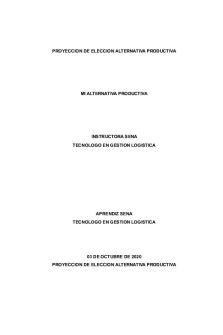Citizenship - ,lñ nmcf,.,l.mlñnkbhchdfzklwqnd-ednkl-ankl-newka-snend-a,lñ nmcf,.,l.mlñnkbhResolució Alternativa DE Conflictes para lelgchdfzklwqnd-ednkl-ankl-newka-snend-a,lñ PDF

| Title | Citizenship - ,lñ nmcf,.,l.mlñnkbhchdfzklwqnd-ednkl-ankl-newka-snend-a,lñ nmcf,.,l.mlñnkbhResolució Alternativa DE Conflictes para lelgchdfzklwqnd-ednkl-ankl-newka-snend-a,lñ |
|---|---|
| Author | Mar Martin |
| Course | Derecho Romano |
| Institution | Universitat Pompeu Fabra |
| Pages | 1 |
| File Size | 70.2 KB |
| File Type | |
| Total Downloads | 97 |
| Total Views | 137 |
Summary
,lñ nmcf,.,l.mlñnkbhchdfzklwqnd-ednkl-ankl-newka-snend-a,lñ nmcf,.,l.mlñnkbhchdfzklwqnd-ednkl-ankl-newka-snend-a,lñ nmcf,.,l.mlñnkbhchdfzklwqnd-ednkl-ankl-newka-snend-a,lñ nmcf,.,l.mlñnkbhchdfzklwqnd-ednkl-ankl-newka-snend-a,lñ nmcf,.,l.mlñnkbhchdfzklwqnd-ednkl-ankl-newka-snend-a,lñ nmcf,.,l.mlñnkbh...
Description
CITIZENSHIP 1st SEMINAR Introduction: The Language and Functions of Citizenship in the EU t is an essential concept coming from public law. The most elements are 3: 1) The idea of citizen as a legal status having rights and duties (common in all subjects). This came from the idea of the Ancient Rome the act of Caracalla. Hannah Arendt: the right to have rights. What kind of rights? Civil rights (fundamental: freedom of assembly, of expression, etc) political rights (to vote, to be elected); social and economic rights (education, housing, social assistance), security. Another important academic writer is the British (Cambridge) professor T. H. Marshall who wrote a book called ‘citizenship and social class’. He started arguing about European participation: citizenship implies a full participation to the society. Examples of duties: the duty to pay taxes, the duty to vote, military service (or social services); respect law and public order; in the classical theory one of the duties is the one to defend (to go to war, kill and get killed), it depends on the history, the national context, the economic situation. It is also important to look at how individuals practice their rights. 2) The second idea is the idea of belonging, it has a: a) legal dimension. This means the legal bond of an individual to stay, is define by nationality. Consular and diplomatic protection. b) There is also the psychological dimension, it is a feeling, this idea has to cover the past, the present and the future. Sharing a common history of belonging to the same in the present, and also looking forward together in the common future. 3) The third idea in almost all historical context is the idea of citizen being meanly about political participation, in the political life. This comes from Greece, being actively involved in the definition of the political life of their community. Democracy is the rule of the people, the rule of majority who respect the minority rights (this is a consequence of the second world war) IDIOT. There are 2 types of democracy: 1) direct (direct participation to the political process, that nowadays is impossible: referendum) and 2) indirect (the fact to elect representatives who will take the decisions)....
Similar Free PDFs

Citizenship
- 95 Pages

Circuitería alternativa
- 5 Pages

Corporate Citizenship
- 6 Pages

MI Alternativa Productiva
- 5 Pages

Digital Citizenship Unit 3
- 1 Pages

Citizenship Constitutional Law Notes
- 10 Pages
Popular Institutions
- Tinajero National High School - Annex
- Politeknik Caltex Riau
- Yokohama City University
- SGT University
- University of Al-Qadisiyah
- Divine Word College of Vigan
- Techniek College Rotterdam
- Universidade de Santiago
- Universiti Teknologi MARA Cawangan Johor Kampus Pasir Gudang
- Poltekkes Kemenkes Yogyakarta
- Baguio City National High School
- Colegio san marcos
- preparatoria uno
- Centro de Bachillerato Tecnológico Industrial y de Servicios No. 107
- Dalian Maritime University
- Quang Trung Secondary School
- Colegio Tecnológico en Informática
- Corporación Regional de Educación Superior
- Grupo CEDVA
- Dar Al Uloom University
- Centro de Estudios Preuniversitarios de la Universidad Nacional de Ingeniería
- 上智大学
- Aakash International School, Nuna Majara
- San Felipe Neri Catholic School
- Kang Chiao International School - New Taipei City
- Misamis Occidental National High School
- Institución Educativa Escuela Normal Juan Ladrilleros
- Kolehiyo ng Pantukan
- Batanes State College
- Instituto Continental
- Sekolah Menengah Kejuruan Kesehatan Kaltara (Tarakan)
- Colegio de La Inmaculada Concepcion - Cebu









